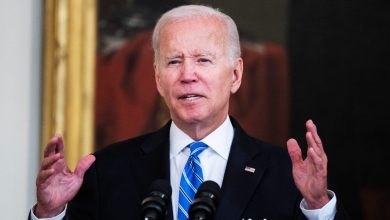The Changing Role of CMO: Adapting to Culture and Technology Shifts

In recent years, the role of the Chief Marketing Officer (CMO) has been evolving rapidly. With the advent of new technologies and a shift in consumer behavior and expectations, the traditional responsibilities of the CMO are being expanded and redefined. In today’s business landscape, the CMO plays a crucial role in driving growth, fostering innovation, and shaping the company’s culture.
Culture shifts have been a significant factor in transforming the role of the CMO. As businesses become more focused on sustainability, diversity, and ethics, the CMO is responsible for aligning the marketing strategy with these values. This includes developing messaging and campaigns that reflect the company’s commitment to social responsibility and building trust with customers. In today’s world, consumers want to connect with brands that stand for something beyond just selling products or services. As a result, the CMO is at the forefront of driving purpose-driven marketing initiatives.
Technology has undeniably had a profound impact on the role of the CMO. New tools and platforms have revolutionized the way marketing campaigns are executed, measured, and optimized. With the rise of social media, mobile devices, and big data, the CMO must be well-versed in digital marketing strategies and technology trends. In addition, the CMO needs to leverage data analytics effectively to gain insights into consumer behavior, preferences, and market trends. This data-driven approach allows the CMO to make informed decisions and maximize the return on investment for marketing initiatives.
One of the key challenges for CMOs in this rapidly changing landscape is staying ahead of the curve and keeping up with technological advancements. The pace of innovation is relentless, and CMOs need to constantly learn and adapt to new tools, platforms, and marketing techniques. To succeed in this evolving role, CMOs must embrace a growth mindset, be open to experimentation, and foster a culture of learning within their teams. This includes encouraging collaboration across departments, fostering innovation, and developing a deep understanding of the customer journey.
Another significant change in the role of the CMO is the increased focus on customer experience. In today’s hyper-competitive market, companies are realizing the importance of delivering exceptional customer experiences to build brand loyalty. CMOs are responsible for developing strategies that encompass every touchpoint in the customer journey, from initial brand awareness to post-purchase support. By understanding the customer’s needs, preferences, and pain points, the CMO can design personalized, seamless experiences that differentiate the brand from competitors.
The evolving role of the CMO presents both opportunities and challenges for marketing leaders. While the expanded responsibilities require CMOs to have a diverse skill set, it also gives them the chance to make a significant impact on their organization’s growth and success. By embracing new technologies, fostering a customer-centric culture, and driving purpose-driven marketing initiatives, CMOs can navigate the changing landscape and emerge as strategic leaders in their organizations.




